Wholesale Herbs Middle East: An All-Encompassing Best Guideline – 13 Essential Tips for Buyers Qatar | Kuwait | UAE | Saudi Arabia | Bahrain
The Wholesale Herbs Middle East market is supplied by Mulberry Growers, but here we provide an exceptional guide to help buyers become pros in sourcing for herbs to sell in the Middle East. We tell you what our most effective partners and buyers are doing so that you also understand how to grow in this market.
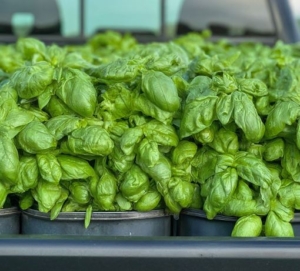
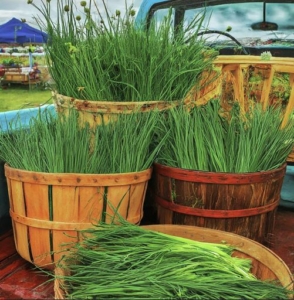
Our hope at Mulberry Growers is that you will prioritize these areas of importance in your plans for growth so that you enjoy the big gains that some of our partners are recording. Usually, business leaders, managers, procurement specialists, and supply chain professionals are the audience for such knowledge. However, we make this digestible and objective for anyone with the intention for effective sourcing of herbs and performing highly in the Middle East market for herbs.
Warehouse Layout Optimization
Optimizing your warehouse layout is a good place to start. In the Wholesale Herbs Middle East market, this involves strategic zoning to enhance operational efficiency. By categorizing your herbs into specific zones based on their types, businesses in the Wholesale Herbs Middle East market can streamline the picking and packing processes, reducing handling times. For example, grouping similar items together ensures that frequently picked items are easily accessible, minimizing travel time within the warehouse. Dynamic slotting adjusts product locations based on real-time demand patterns, which helps in managing high-turnover items effectively. This organization not only improves workflow efficiency but also maximizes the use of available space, ensuring that the warehouse can accommodate a diverse range of products efficiently.
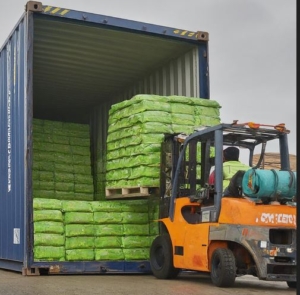
In the Middle East, employing advanced picking methods can significantly improve order fulfillment speed and accuracy. Pick-to-light systems use illuminated indicators to guide warehouse staff directly to the location of items, reducing errors and speeding up the picking process. Voice picking technology provides hands-free, verbal instructions, allowing for greater accuracy and efficiency. Batch picking, where multiple orders are combined into a single picking run, reduces the overall time required for order fulfillment. These technologies collectively enhance productivity, ensuring quicker processing and reducing the potential for mistakes, which is crucial in high-volume distribution environments.
Cross-docking is a key strategy for reducing storage time in warehouses by facilitating the direct transfer of products from receiving to shipping areas. This process involves minimizing the time products spend in storage through efficient inbound-to-outbound transfer procedures. By implementing pre-sorting methods before products reach the cross-dock area, warehouses can further expedite processing and reduce bottlenecks. Coordinated dock scheduling ensures that incoming and outgoing shipments are managed effectively, optimizing flow and minimizing congestion. This approach enhances overall distribution efficiency and reduces handling times, which is essential for meeting fast-paced market demands.
Flexible Packaging Solutions
Custom Packaging: In the Middle East, flexible packaging solutions are vital for meeting the diverse needs of wholesalers and end consumers. Custom packaging options allow businesses in the Wholesale Herbs Middle East market to tailor packaging sizes to match market demands, providing versatility for different product types. Branding and labeling customization enhance market presence and recognition, making products more appealing to retailers and consumers. Additionally, using protective packaging materials ensures that products remain intact during long-distance transit, which is crucial given the region’s diverse climatic conditions. This approach not only meets specific market needs but also addresses logistical challenges associated with shipping across the Middle East.

Sustainable Packaging: Implementing sustainable packaging solutions is increasingly important in the Wholesale Herbs Middle East market due to environmental regulations and consumer preferences. Utilizing recyclable materials aligns with global sustainability trends and reduces environmental impact. Biodegradable packaging options further contribute to minimizing ecological footprints, addressing concerns about waste management. Adopting a minimalist design approach, which reduces the amount of packaging material used, not only helps comply with environmental standards but also appeals to eco-conscious consumers. These sustainable practices not only meet regulatory requirements but also support a positive brand image and align with growing market expectations for environmentally friendly products.
Automated Packaging Systems: In the Middle East, integrating automated packaging systems enhances efficiency and consistency in warehouse operations. Robotic packing systems streamline the packaging process by providing fast and precise handling, which reduces labor costs and increases throughput. Automated filling machines ensure that packages are filled accurately and uniformly, maintaining product quality and reducing waste. Advanced sealing technologies further secure packaging, protecting products during transit and storage. These automation solutions help manage higher volumes of distribution efficiently, improve operational accuracy, and support faster processing times, which is crucial for competitive and high-demand markets in the region.
Demand Management in Wholesale Herbs Middle East
Seasonal Adjustments: Managing demand in the Wholesale Herbs Middle East market requires adapting distribution strategies to account for seasonal fluctuations. Seasonal inventory planning involves adjusting stock levels to meet the demands of peak and off-peak seasons, ensuring that products are available when needed. Planning promotional campaigns during high-demand periods can drive sales and optimize inventory turnover. Effective coordination with suppliers in the Wholesale Herbs Middle East market is essential to align production schedules with seasonal needs, preventing stockouts and ensuring a steady supply chain. By anticipating and preparing for seasonal variations, businesses in the Wholesale Herbs Middle East market can maintain inventory efficiency and meet market demands effectively throughout the year.
Just-in-Case Inventory: Maintaining just-in-case inventory is a critical strategy for handling unexpected demand spikes in the Middle East. Setting higher safety stock levels provides a buffer against sudden increases in demand, ensuring that critical products are available even during unforeseen surges. Buffer inventory for essential items prevents stockouts and supports continuous supply. Allowing flexibility in order sizes enables businesses in the Wholesale Herbs Middle East market to adjust to demand changes quickly, improving responsiveness. This approach helps manage inventory more effectively and ensures that businesses in the Wholesale Herbs Middle East market can meet customer needs without disruptions, especially in regions with variable demand patterns and supply chain challenges.
Collaborative Forecasting: Effective demand management in the Wholesale Herbs Middle East market benefits from collaborative forecasting, which involves sharing forecasts with partners to improve alignment and accuracy. Joint forecasting efforts with suppliers in the Wholesale Herbs Middle East market and distributors help refine predictions and enhance supply chain coordination. Utilizing data-sharing platforms allows real-time access to demand information, facilitating better alignment of production and distribution schedules. Incorporating feedback from partners into forecasting models ensures that forecasts reflect actual market conditions and collaborative input. This approach improves inventory management, enhances supply chain efficiency, and helps businesses in the Wholesale Herbs Middle East market respond more effectively to market demands and fluctuations.
Integrated Communication Systems
Use unified communication platforms. Implementing unified communication platforms in the Wholesale Herbs Middle East market can significantly enhance collaboration and operational efficiency across the supply chain. A centralized messaging system integrates all distribution-related communication into one platform, facilitating seamless interactions among partners, suppliers, and logistics providers. Real-time updates on inventory, orders, and shipments ensure that all stakeholders have access to the latest information, reducing misunderstandings and delays. Additionally, integrated collaboration tools, such as shared digital workspaces and project management features, support collaborative planning and problem-solving, making it easier to address issues and streamline processes in a region known for its dynamic market conditions.
Offering customer portals is an effective strategy for improving wholesaler engagement and self-service capabilities in the Middle East. These portals allow wholesalers to track their orders in real-time, view detailed inventory levels, and manage their accounts independently. Order tracking features provide visibility into the status of shipments, while inventory visibility tools help wholesalers anticipate lead times and plan their stock levels accordingly. Self-service options empower wholesalers to place orders and make account changes without direct intervention from customer service, thus enhancing efficiency and satisfaction while accommodating the diverse needs of the region’s wholesale market.
Setting up automated notifications is crucial for maintaining effective communication and operational efficiency in Middle Eastern distribution networks. Automated order confirmations and updates ensure that wholesalers are promptly informed about their order statuses and any changes. Inventory alerts notify partners when stock levels hit predefined thresholds, enabling timely replenishment and avoiding potential disruptions. Shipment status updates provide visibility into the delivery process, helping wholesalers plan accordingly and manage their inventory. These notifications streamline communication, reduce manual effort, and ensure that all stakeholders remain informed about key distribution events, enhancing overall coordination and responsiveness.
Cold Chain Management in Wholesale Herbs Middle East
Temperature Control: Effective cold chain management is essential in the Wholesale Herbs Middle East market due to the region’s high temperatures and the need to maintain the quality of temperature-sensitive products. Utilizing refrigerated transport ensures that products are kept at the required temperatures throughout transit, preserving their quality and safety. Temperature monitoring systems track and record temperatures in real-time, providing data to ensure compliance with required conditions. Emergency procedures for temperature deviations are crucial for managing unexpected issues, such as equipment failures or transit delays, to minimize the risk of spoilage and ensure that products reach their destination in optimal condition.

Cold Storage Solutions: In the Middle East, specialized cold storage facilities are vital for managing perishable goods effectively. Creating temperature-controlled zones within warehouses allows for the segregation of products that require different storage conditions. Additionally, managing humidity levels is critical to prevent spoilage and maintain product quality. Implementing FIFO (First In, First Out) principles ensures that older stock is used before newer arrivals, reducing the risk of inventory obsolescence and waste. These cold storage solutions support the efficient handling and preservation of perishable goods, addressing the challenges posed by the region’s climate and ensuring product safety and quality.
Compliance and Certification: Adhering to regulatory standards is crucial for effective cold chain management in the Middle East. Compliance with Hazard Analysis and Critical Control Points (HACCP) guidelines ensures that all critical control points in the cold chain are monitored and managed to prevent contamination and ensure food safety. Following Good Manufacturing Practices (GMP) provides additional assurance of quality handling procedures for temperature-sensitive products. Obtaining relevant certifications from authorities demonstrates adherence to these standards and enhances credibility with stakeholders. These compliance measures are essential for maintaining product integrity and meeting market expectations in a region with stringent regulatory requirements.
Risk Management Strategies
Contingency Planning: Developing robust contingency plans is essential for managing distribution disruptions in the Middle East, where supply chain challenges can be significant. Identifying alternative suppliers in the Wholesale Herbs Middle East market and backup logistics providers helps mitigate the risk of supply chain interruptions, ensuring continuity of operations. Having well-defined emergency response plans for various disruption scenarios, such as natural disasters or geopolitical events, is critical for minimizing impact and maintaining service levels. These plans should include clear procedures for activating backup resources and communicating with stakeholders, enabling businesses in the Wholesale Herbs Middle East market to respond swiftly and effectively to unexpected challenges in the region’s complex distribution environment.
Insurance Coverage: Ensuring comprehensive insurance coverage is a key component of risk management in Middle Eastern distribution networks. Cargo insurance protects goods in transit against loss or damage, safeguarding against financial losses due to unforeseen incidents. Liability insurance covers potential claims related to distribution activities, such as product defects or service failures. Property insurance for warehouses and distribution centers is crucial for protecting physical assets from damage due to events like fires or natural disasters. Adequate insurance coverage helps businesses in the Wholesale Herbs Middle East market manage financial risks and ensures resilience against various distribution-related threats in the region.
Risk Assessment: Conducting regular risk assessments is vital for identifying and addressing potential issues in the Middle Eastern distribution landscape. Supply chain mapping helps pinpoint vulnerabilities and dependencies that could impact operations. Risk scoring evaluates the likelihood and potential impact of identified risks, enabling businesses in the Wholesale Herbs Middle East market to prioritize mitigation efforts effectively. Developing and implementing strategies to address these risks ensures that potential disruptions are managed proactively. Regular assessments and updates to risk management plans help maintain operational stability and resilience, supporting businesses in the Wholesale Herbs Middle East market in navigating the complex and often volatile market conditions of the region.
Cross-Border Distribution in Wholesale Herbs Middle East
Customs Compliance: Effective customs compliance is essential for smooth cross-border distribution, particularly in the Wholesale Herbs Middle East market where regulations can be complex and vary between countries. Properly preparing and managing import and export documentation ensures that shipments clear customs without delays. Understanding and managing tariffs and duties is crucial, as these can impact overall costs and pricing strategies significantly. Regulatory adherence involves following the laws and standards of both the exporting and importing countries to avoid legal issues. Accurate and timely documentation, along with diligent regulatory compliance, helps maintain efficient and uninterrupted cross-border operations.
International Logistics: Managing international logistics requires a comprehensive strategy to handle the intricacies of cross-border distribution. Partnering with reputable global shipping companies ensures that products are delivered efficiently and reliably across international borders. Utilizing international warehousing solutions helps to minimize shipping times and optimize inventory management in key markets. Developing strong relationships with local distributors can enhance market reach and facilitate smoother distribution within regional markets. This multi-layered approach to logistics integrates global shipping expertise, local distribution capabilities, and warehousing solutions to address the challenges of cross-border distribution effectively.
Currency Management: Currency management is a vital aspect of cross-border distribution that involves handling exchange rates and financial transactions. Managing exchange rate risk through strategies such as hedging can protect against the financial impacts of currency fluctuations, which is crucial for maintaining profitability. Negotiating favorable payment terms with international partners can improve cash flow and reduce financial strain. Accurate financial reporting is essential for tracking and managing cross-border transactions and ensuring compliance with accounting standards. By effectively addressing these financial aspects, businesses in the Wholesale Herbs Middle East market can enhance their economic stability and operational efficiency in international markets.
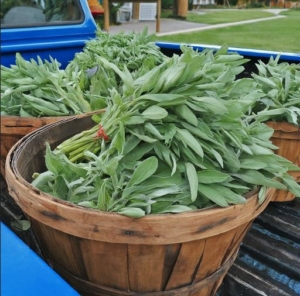
Automated Inventory Replenishment
Replenishment Algorithms: Automated inventory replenishment through advanced algorithms significantly improves inventory management efficiency. Demand-based replenishment systems use sophisticated algorithms to automatically trigger restocking based on real-time demand forecasts, ensuring inventory levels align with market needs. Continuous monitoring of stock levels helps to maintain timely replenishment and prevent both stockouts and overstocking issues. Integrating with suppliers in the Wholesale Herbs Middle East market to automate order placement and fulfillment reduces manual intervention and associated errors. This automated approach streamlines inventory management, ensures optimal stock levels, and supports consistent product availability, enhancing overall supply chain performance.

Automatic Order Generation: Automatic order generation systems are crucial for efficient inventory management, reducing the need for manual intervention. By setting predefined minimum and maximum inventory levels, these systems automatically place orders when stock reaches critical thresholds. This process can be configured based on regular intervals or specific demand patterns, ensuring that inventory is consistently replenished. Exception handling features allow for adjustments to be made in response to anomalies or unexpected changes in demand. This automation not only reduces workload but also enhances order accuracy and supports timely inventory replenishment.
Advanced Forecasting Tools: Utilizing advanced forecasting tools can greatly enhance the accuracy of inventory management. Machine learning models analyze vast amounts of data to predict future inventory needs with greater precision. By examining historical data, these tools identify trends and patterns that inform future demand forecasts. Additionally, incorporating seasonal adjustments helps to account for fluctuations in demand due to seasonal changes and events. These advanced forecasting techniques improve inventory alignment with market demand, reducing the risks of stockouts and overstocking while ensuring that inventory levels are well-managed throughout the year.
Product Traceability
Barcoding Systems: Barcoding systems play a crucial role in enhancing product traceability throughout the the Wholesale Herbs Middle East supply chain. By implementing barcode scanning technologies, businesses in the Wholesale Herbs Middle East market can track products in real-time, capturing data at every stage from production to delivery. This automated data capture reduces errors and ensures accurate tracking and management of inventory. Barcoding systems provide detailed visibility into product movement, which supports efficient inventory control and facilitates prompt resolution of any issues that arise. This enhanced traceability helps maintain product quality and reliability, ensuring that supply chain processes operate smoothly and transparently.
RFID Technology: RFID technology offers advanced capabilities for product traceability, providing real-time visibility into the movement of products throughout the Wholesale Herbs Middle East supply chain. RFID tags store detailed information that can be read remotely, allowing for accurate and continuous tracking. Integrating RFID data with inventory and order management systems enhances overall traceability and efficiency. By using RFID technology, businesses in the Wholesale Herbs Middle East market can reduce loss and theft, ensure product quality, and improve inventory management. This advanced tracking solution helps maintain a reliable and transparent supply chain, addressing challenges associated with managing and monitoring products across various stages.
Blockchain for Traceability: Blockchain technology introduces a revolutionary approach to product traceability by providing a secure and immutable record of transactions. Each step in the product’s journey is recorded on a decentralized ledger, creating a transparent and verifiable chain of custody. This technology enhances trust and reliability in the Wholesale Herbs Middle East supply chain by preventing fraud and ensuring the authenticity of products. Blockchain’s ability to offer real-time visibility into the supply chain improves accountability and traceability, providing stakeholders with confidence in the integrity of products and addressing challenges related to product verification and supply chain transparency.
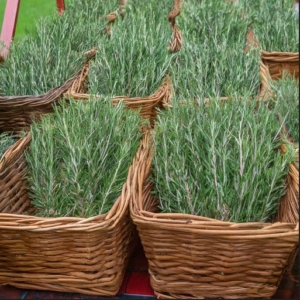
Takeaway Tip
In conclusion, mastering the nuances of the Wholesale Herbs Middle East market is not just about understanding the supply chain, but also about leveraging best practices from top performers in the field. By prioritizing the areas outlined in this guide, you position yourself not only to navigate the complexities of this vibrant market but also to capitalize on the opportunities for substantial growth.
At Mulberry growers, our aim is to supply quality fresh herbs as we provide you with clear, actionable insights that cater to both industry veterans and newcomers alike, ensuring that everyone—from business leaders to procurement specialists—can effectively source herbs and excel in the Middle Eastern market. With this knowledge, you are equipped to transform your sourcing strategies and achieve significant success.
Contact Us – We Supply Herbs the Middle East
We supply oregano, basil, sage, chives, tarragon, rosemary, and thyme to the Middle East: Qatar, Saudi Arabia, UAE, Bahrain, Kuwait, and other regions.
Welcome! Make any inquiry here:
- Call/WhatsApp: +254 716 150 111 OR +254 748 897 749
- Our Email: commercial@mulberrygrowers.com
- Website: www.mulberrygrowers.com